Ubuntu 下 nginx-1.24.0 源码分析 - ngx_init_cycle 函数
nei声明在 src/core/ngx_cycle.h
ngx_cycle_t *ngx_init_cycle(ngx_cycle_t *old_cycle);
实现在 src/core/ngx_cycle.c
ngx_cycle_t *
ngx_init_cycle(ngx_cycle_t *old_cycle)
{void *rv;char **senv;ngx_uint_t i, n;ngx_log_t *log;ngx_time_t *tp;ngx_conf_t conf;ngx_pool_t *pool;ngx_cycle_t *cycle, **old;ngx_shm_zone_t *shm_zone, *oshm_zone;ngx_list_part_t *part, *opart;ngx_open_file_t *file;ngx_listening_t *ls, *nls;ngx_core_conf_t *ccf, *old_ccf;ngx_core_module_t *module;char hostname[NGX_MAXHOSTNAMELEN];ngx_timezone_update();/* force localtime update with a new timezone */tp = ngx_timeofday();tp->sec = 0;ngx_time_update();log = old_cycle->log;pool = ngx_create_pool(NGX_CYCLE_POOL_SIZE, log);if (pool == NULL) {return NULL;}pool->log = log;cycle = ngx_pcalloc(pool, sizeof(ngx_cycle_t));if (cycle == NULL) {ngx_destroy_pool(pool);return NULL;}cycle->pool = pool;cycle->log = log;cycle->old_cycle = old_cycle;cycle->conf_prefix.len = old_cycle->conf_prefix.len;cycle->conf_prefix.data = ngx_pstrdup(pool, &old_cycle->conf_prefix);if (cycle->conf_prefix.data == NULL) {ngx_destroy_pool(pool);return NULL;}cycle->prefix.len = old_cycle->prefix.len;cycle->prefix.data = ngx_pstrdup(pool, &old_cycle->prefix);if (cycle->prefix.data == NULL) {ngx_destroy_pool(pool);return NULL;}cycle->error_log.len = old_cycle->error_log.len;cycle->error_log.data = ngx_pnalloc(pool, old_cycle->error_log.len + 1);if (cycle->error_log.data == NULL) {ngx_destroy_pool(pool);return NULL;}ngx_cpystrn(cycle->error_log.data, old_cycle->error_log.data,old_cycle->error_log.len + 1);cycle->conf_file.len = old_cycle->conf_file.len;cycle->conf_file.data = ngx_pnalloc(pool, old_cycle->conf_file.len + 1);if (cycle->conf_file.data == NULL) {ngx_destroy_pool(pool);return NULL;}ngx_cpystrn(cycle->conf_file.data, old_cycle->conf_file.data,old_cycle->conf_file.len + 1);cycle->conf_param.len = old_cycle->conf_param.len;cycle->conf_param.data = ngx_pstrdup(pool, &old_cycle->conf_param);if (cycle->conf_param.data == NULL) {ngx_destroy_pool(pool);return NULL;}n = old_cycle->paths.nelts ? old_cycle->paths.nelts : 10;if (ngx_array_init(&cycle->paths, pool, n, sizeof(ngx_path_t *))!= NGX_OK){ngx_destroy_pool(pool);return NULL;}ngx_memzero(cycle->paths.elts, n * sizeof(ngx_path_t *));if (ngx_array_init(&cycle->config_dump, pool, 1, sizeof(ngx_conf_dump_t))!= NGX_OK){ngx_destroy_pool(pool);return NULL;}ngx_rbtree_init(&cycle->config_dump_rbtree, &cycle->config_dump_sentinel,ngx_str_rbtree_insert_value);if (old_cycle->open_files.part.nelts) {n = old_cycle->open_files.part.nelts;for (part = old_cycle->open_files.part.next; part; part = part->next) {n += part->nelts;}} else {n = 20;}if (ngx_list_init(&cycle->open_files, pool, n, sizeof(ngx_open_file_t))!= NGX_OK){ngx_destroy_pool(pool);return NULL;}if (old_cycle->shared_memory.part.nelts) {n = old_cycle->shared_memory.part.nelts;for (part = old_cycle->shared_memory.part.next; part; part = part->next){n += part->nelts;}} else {n = 1;}if (ngx_list_init(&cycle->shared_memory, pool, n, sizeof(ngx_shm_zone_t))!= NGX_OK){ngx_destroy_pool(pool);return NULL;}n = old_cycle->listening.nelts ? old_cycle->listening.nelts : 10;if (ngx_array_init(&cycle->listening, pool, n, sizeof(ngx_listening_t))!= NGX_OK){ngx_destroy_pool(pool);return NULL;}ngx_memzero(cycle->listening.elts, n * sizeof(ngx_listening_t));ngx_queue_init(&cycle->reusable_connections_queue);cycle->conf_ctx = ngx_pcalloc(pool, ngx_max_module * sizeof(void *));if (cycle->conf_ctx == NULL) {ngx_destroy_pool(pool);return NULL;}if (gethostname(hostname, NGX_MAXHOSTNAMELEN) == -1) {ngx_log_error(NGX_LOG_EMERG, log, ngx_errno, "gethostname() failed");ngx_destroy_pool(pool);return NULL;}/* on Linux gethostname() silently truncates name that does not fit */hostname[NGX_MAXHOSTNAMELEN - 1] = '\0';cycle->hostname.len = ngx_strlen(hostname);cycle->hostname.data = ngx_pnalloc(pool, cycle->hostname.len);if (cycle->hostname.data == NULL) {ngx_destroy_pool(pool);return NULL;}ngx_strlow(cycle->hostname.data, (u_char *) hostname, cycle->hostname.len);if (ngx_cycle_modules(cycle) != NGX_OK) {ngx_destroy_pool(pool);return NULL;}for (i = 0; cycle->modules[i]; i++) {if (cycle->modules[i]->type != NGX_CORE_MODULE) {continue;}module = cycle->modules[i]->ctx;if (module->create_conf) {rv = module->create_conf(cycle);if (rv == NULL) {ngx_destroy_pool(pool);return NULL;}cycle->conf_ctx[cycle->modules[i]->index] = rv;}}senv = environ;ngx_memzero(&conf, sizeof(ngx_conf_t));/* STUB: init array ? */conf.args = ngx_array_create(pool, 10, sizeof(ngx_str_t));if (conf.args == NULL) {ngx_destroy_pool(pool);return NULL;}conf.temp_pool = ngx_create_pool(NGX_CYCLE_POOL_SIZE, log);if (conf.temp_pool == NULL) {ngx_destroy_pool(pool);return NULL;}conf.ctx = cycle->conf_ctx;conf.cycle = cycle;conf.pool = pool;conf.log = log;conf.module_type = NGX_CORE_MODULE;conf.cmd_type = NGX_MAIN_CONF;#if 0log->log_level = NGX_LOG_DEBUG_ALL;
#endifif (ngx_conf_param(&conf) != NGX_CONF_OK) {environ = senv;ngx_destroy_cycle_pools(&conf);return NULL;}if (ngx_conf_parse(&conf, &cycle->conf_file) != NGX_CONF_OK) {environ = senv;ngx_destroy_cycle_pools(&conf);return NULL;}if (ngx_test_config && !ngx_quiet_mode) {ngx_log_stderr(0, "the configuration file %s syntax is ok",cycle->conf_file.data);}for (i = 0; cycle->modules[i]; i++) {if (cycle->modules[i]->type != NGX_CORE_MODULE) {continue;}module = cycle->modules[i]->ctx;if (module->init_conf) {if (module->init_conf(cycle,cycle->conf_ctx[cycle->modules[i]->index])== NGX_CONF_ERROR){environ = senv;ngx_destroy_cycle_pools(&conf);return NULL;}}}if (ngx_process == NGX_PROCESS_SIGNALLER) {return cycle;}ccf = (ngx_core_conf_t *) ngx_get_conf(cycle->conf_ctx, ngx_core_module);if (ngx_test_config) {if (ngx_create_pidfile(&ccf->pid, log) != NGX_OK) {goto failed;}} else if (!ngx_is_init_cycle(old_cycle)) {/** we do not create the pid file in the first ngx_init_cycle() call* because we need to write the demonized process pid*/old_ccf = (ngx_core_conf_t *) ngx_get_conf(old_cycle->conf_ctx,ngx_core_module);if (ccf->pid.len != old_ccf->pid.len|| ngx_strcmp(ccf->pid.data, old_ccf->pid.data) != 0){/* new pid file name */if (ngx_create_pidfile(&ccf->pid, log) != NGX_OK) {goto failed;}ngx_delete_pidfile(old_cycle);}}if (ngx_test_lockfile(cycle->lock_file.data, log) != NGX_OK) {goto failed;}if (ngx_create_paths(cycle, ccf->user) != NGX_OK) {goto failed;}if (ngx_log_open_default(cycle) != NGX_OK) {goto failed;}/* open the new files */part = &cycle->open_files.part;file = part->elts;for (i = 0; /* void */ ; i++) {if (i >= part->nelts) {if (part->next == NULL) {break;}part = part->next;file = part->elts;i = 0;}if (file[i].name.len == 0) {continue;}file[i].fd = ngx_open_file(file[i].name.data,NGX_FILE_APPEND,NGX_FILE_CREATE_OR_OPEN,NGX_FILE_DEFAULT_ACCESS);ngx_log_debug3(NGX_LOG_DEBUG_CORE, log, 0,"log: %p %d \"%s\"",&file[i], file[i].fd, file[i].name.data);if (file[i].fd == NGX_INVALID_FILE) {ngx_log_error(NGX_LOG_EMERG, log, ngx_errno,ngx_open_file_n " \"%s\" failed",file[i].name.data);goto failed;}#if !(NGX_WIN32)if (fcntl(file[i].fd, F_SETFD, FD_CLOEXEC) == -1) {ngx_log_error(NGX_LOG_EMERG, log, ngx_errno,"fcntl(FD_CLOEXEC) \"%s\" failed",file[i].name.data);goto failed;}
#endif}cycle->log = &cycle->new_log;pool->log = &cycle->new_log;/* create shared memory */part = &cycle->shared_memory.part;shm_zone = part->elts;for (i = 0; /* void */ ; i++) {if (i >= part->nelts) {if (part->next == NULL) {break;}part = part->next;shm_zone = part->elts;i = 0;}if (shm_zone[i].shm.size == 0) {ngx_log_error(NGX_LOG_EMERG, log, 0,"zero size shared memory zone \"%V\"",&shm_zone[i].shm.name);goto failed;}shm_zone[i].shm.log = cycle->log;opart = &old_cycle->shared_memory.part;oshm_zone = opart->elts;for (n = 0; /* void */ ; n++) {if (n >= opart->nelts) {if (opart->next == NULL) {break;}opart = opart->next;oshm_zone = opart->elts;n = 0;}if (shm_zone[i].shm.name.len != oshm_zone[n].shm.name.len) {continue;}if (ngx_strncmp(shm_zone[i].shm.name.data,oshm_zone[n].shm.name.data,shm_zone[i].shm.name.len)!= 0){continue;}if (shm_zone[i].tag == oshm_zone[n].tag&& shm_zone[i].shm.size == oshm_zone[n].shm.size&& !shm_zone[i].noreuse){shm_zone[i].shm.addr = oshm_zone[n].shm.addr;
#if (NGX_WIN32)shm_zone[i].shm.handle = oshm_zone[n].shm.handle;
#endifif (shm_zone[i].init(&shm_zone[i], oshm_zone[n].data)!= NGX_OK){goto failed;}goto shm_zone_found;}break;}if (ngx_shm_alloc(&shm_zone[i].shm) != NGX_OK) {goto failed;}if (ngx_init_zone_pool(cycle, &shm_zone[i]) != NGX_OK) {goto failed;}if (shm_zone[i].init(&shm_zone[i], NULL) != NGX_OK) {goto failed;}shm_zone_found:continue;}/* handle the listening sockets */if (old_cycle->listening.nelts) {ls = old_cycle->listening.elts;for (i = 0; i < old_cycle->listening.nelts; i++) {ls[i].remain = 0;}nls = cycle->listening.elts;for (n = 0; n < cycle->listening.nelts; n++) {for (i = 0; i < old_cycle->listening.nelts; i++) {if (ls[i].ignore) {continue;}if (ls[i].remain) {continue;}if (ls[i].type != nls[n].type) {continue;}if (ngx_cmp_sockaddr(nls[n].sockaddr, nls[n].socklen,ls[i].sockaddr, ls[i].socklen, 1)== NGX_OK){nls[n].fd = ls[i].fd;nls[n].inherited = ls[i].inherited;nls[n].previous = &ls[i];ls[i].remain = 1;if (ls[i].backlog != nls[n].backlog) {nls[n].listen = 1;}#if (NGX_HAVE_DEFERRED_ACCEPT && defined SO_ACCEPTFILTER)/** FreeBSD, except the most recent versions,* could not remove accept filter*/nls[n].deferred_accept = ls[i].deferred_accept;if (ls[i].accept_filter && nls[n].accept_filter) {if (ngx_strcmp(ls[i].accept_filter,nls[n].accept_filter)!= 0){nls[n].delete_deferred = 1;nls[n].add_deferred = 1;}} else if (ls[i].accept_filter) {nls[n].delete_deferred = 1;} else if (nls[n].accept_filter) {nls[n].add_deferred = 1;}
#endif#if (NGX_HAVE_DEFERRED_ACCEPT && defined TCP_DEFER_ACCEPT)if (ls[i].deferred_accept && !nls[n].deferred_accept) {nls[n].delete_deferred = 1;} else if (ls[i].deferred_accept != nls[n].deferred_accept){nls[n].add_deferred = 1;}
#endif#if (NGX_HAVE_REUSEPORT)if (nls[n].reuseport && !ls[i].reuseport) {nls[n].add_reuseport = 1;}
#endifbreak;}}if (nls[n].fd == (ngx_socket_t) -1) {nls[n].open = 1;
#if (NGX_HAVE_DEFERRED_ACCEPT && defined SO_ACCEPTFILTER)if (nls[n].accept_filter) {nls[n].add_deferred = 1;}
#endif
#if (NGX_HAVE_DEFERRED_ACCEPT && defined TCP_DEFER_ACCEPT)if (nls[n].deferred_accept) {nls[n].add_deferred = 1;}
#endif}}} else {ls = cycle->listening.elts;for (i = 0; i < cycle->listening.nelts; i++) {ls[i].open = 1;
#if (NGX_HAVE_DEFERRED_ACCEPT && defined SO_ACCEPTFILTER)if (ls[i].accept_filter) {ls[i].add_deferred = 1;}
#endif
#if (NGX_HAVE_DEFERRED_ACCEPT && defined TCP_DEFER_ACCEPT)if (ls[i].deferred_accept) {ls[i].add_deferred = 1;}
#endif}}if (ngx_open_listening_sockets(cycle) != NGX_OK) {goto failed;}if (!ngx_test_config) {ngx_configure_listening_sockets(cycle);}/* commit the new cycle configuration */if (!ngx_use_stderr) {(void) ngx_log_redirect_stderr(cycle);}pool->log = cycle->log;if (ngx_init_modules(cycle) != NGX_OK) {/* fatal */exit(1);}/* close and delete stuff that lefts from an old cycle *//* free the unnecessary shared memory */opart = &old_cycle->shared_memory.part;oshm_zone = opart->elts;for (i = 0; /* void */ ; i++) {if (i >= opart->nelts) {if (opart->next == NULL) {goto old_shm_zone_done;}opart = opart->next;oshm_zone = opart->elts;i = 0;}part = &cycle->shared_memory.part;shm_zone = part->elts;for (n = 0; /* void */ ; n++) {if (n >= part->nelts) {if (part->next == NULL) {break;}part = part->next;shm_zone = part->elts;n = 0;}if (oshm_zone[i].shm.name.len != shm_zone[n].shm.name.len) {continue;}if (ngx_strncmp(oshm_zone[i].shm.name.data,shm_zone[n].shm.name.data,oshm_zone[i].shm.name.len)!= 0){continue;}if (oshm_zone[i].tag == shm_zone[n].tag&& oshm_zone[i].shm.size == shm_zone[n].shm.size&& !oshm_zone[i].noreuse){goto live_shm_zone;}break;}ngx_shm_free(&oshm_zone[i].shm);live_shm_zone:continue;}old_shm_zone_done:/* close the unnecessary listening sockets */ls = old_cycle->listening.elts;for (i = 0; i < old_cycle->listening.nelts; i++) {if (ls[i].remain || ls[i].fd == (ngx_socket_t) -1) {continue;}if (ngx_close_socket(ls[i].fd) == -1) {ngx_log_error(NGX_LOG_EMERG, log, ngx_socket_errno,ngx_close_socket_n " listening socket on %V failed",&ls[i].addr_text);}#if (NGX_HAVE_UNIX_DOMAIN)if (ls[i].sockaddr->sa_family == AF_UNIX) {u_char *name;name = ls[i].addr_text.data + sizeof("unix:") - 1;ngx_log_error(NGX_LOG_WARN, cycle->log, 0,"deleting socket %s", name);if (ngx_delete_file(name) == NGX_FILE_ERROR) {ngx_log_error(NGX_LOG_EMERG, cycle->log, ngx_socket_errno,ngx_delete_file_n " %s failed", name);}}#endif}/* close the unnecessary open files */part = &old_cycle->open_files.part;file = part->elts;for (i = 0; /* void */ ; i++) {if (i >= part->nelts) {if (part->next == NULL) {break;}part = part->next;file = part->elts;i = 0;}if (file[i].fd == NGX_INVALID_FILE || file[i].fd == ngx_stderr) {continue;}if (ngx_close_file(file[i].fd) == NGX_FILE_ERROR) {ngx_log_error(NGX_LOG_EMERG, log, ngx_errno,ngx_close_file_n " \"%s\" failed",file[i].name.data);}}ngx_destroy_pool(conf.temp_pool);if (ngx_process == NGX_PROCESS_MASTER || ngx_is_init_cycle(old_cycle)) {ngx_destroy_pool(old_cycle->pool);cycle->old_cycle = NULL;return cycle;}if (ngx_temp_pool == NULL) {ngx_temp_pool = ngx_create_pool(128, cycle->log);if (ngx_temp_pool == NULL) {ngx_log_error(NGX_LOG_EMERG, cycle->log, 0,"could not create ngx_temp_pool");exit(1);}n = 10;if (ngx_array_init(&ngx_old_cycles, ngx_temp_pool, n,sizeof(ngx_cycle_t *))!= NGX_OK){exit(1);}ngx_memzero(ngx_old_cycles.elts, n * sizeof(ngx_cycle_t *));ngx_cleaner_event.handler = ngx_clean_old_cycles;ngx_cleaner_event.log = cycle->log;ngx_cleaner_event.data = &dumb;dumb.fd = (ngx_socket_t) -1;}ngx_temp_pool->log = cycle->log;old = ngx_array_push(&ngx_old_cycles);if (old == NULL) {exit(1);}*old = old_cycle;if (!ngx_cleaner_event.timer_set) {ngx_add_timer(&ngx_cleaner_event, 30000);ngx_cleaner_event.timer_set = 1;}return cycle;failed:if (!ngx_is_init_cycle(old_cycle)) {old_ccf = (ngx_core_conf_t *) ngx_get_conf(old_cycle->conf_ctx,ngx_core_module);if (old_ccf->environment) {environ = old_ccf->environment;}}/* rollback the new cycle configuration */part = &cycle->open_files.part;file = part->elts;for (i = 0; /* void */ ; i++) {if (i >= part->nelts) {if (part->next == NULL) {break;}part = part->next;file = part->elts;i = 0;}if (file[i].fd == NGX_INVALID_FILE || file[i].fd == ngx_stderr) {continue;}if (ngx_close_file(file[i].fd) == NGX_FILE_ERROR) {ngx_log_error(NGX_LOG_EMERG, log, ngx_errno,ngx_close_file_n " \"%s\" failed",file[i].name.data);}}/* free the newly created shared memory */part = &cycle->shared_memory.part;shm_zone = part->elts;for (i = 0; /* void */ ; i++) {if (i >= part->nelts) {if (part->next == NULL) {break;}part = part->next;shm_zone = part->elts;i = 0;}if (shm_zone[i].shm.addr == NULL) {continue;}opart = &old_cycle->shared_memory.part;oshm_zone = opart->elts;for (n = 0; /* void */ ; n++) {if (n >= opart->nelts) {if (opart->next == NULL) {break;}opart = opart->next;oshm_zone = opart->elts;n = 0;}if (shm_zone[i].shm.name.len != oshm_zone[n].shm.name.len) {continue;}if (ngx_strncmp(shm_zone[i].shm.name.data,oshm_zone[n].shm.name.data,shm_zone[i].shm.name.len)!= 0){continue;}if (shm_zone[i].tag == oshm_zone[n].tag&& shm_zone[i].shm.size == oshm_zone[n].shm.size&& !shm_zone[i].noreuse){goto old_shm_zone_found;}break;}ngx_shm_free(&shm_zone[i].shm);old_shm_zone_found:continue;}if (ngx_test_config) {ngx_destroy_cycle_pools(&conf);return NULL;}ls = cycle->listening.elts;for (i = 0; i < cycle->listening.nelts; i++) {if (ls[i].fd == (ngx_socket_t) -1 || !ls[i].open) {continue;}if (ngx_close_socket(ls[i].fd) == -1) {ngx_log_error(NGX_LOG_EMERG, log, ngx_socket_errno,ngx_close_socket_n " %V failed",&ls[i].addr_text);}}ngx_destroy_cycle_pools(&conf);return NULL;
}
ngx_init_cycle 是 Nginx 核心模块中的一个关键函数,
负责初始化 Nginx 的运行环境。
它基于传入的旧周期(old_cycle)创建一个新的周期(cycle),
并完成一系列复杂的初始化工作,
包括配置文件解析、共享内存分配、监听套接字设置等。
函数签名
ngx_cycle_t *ngx_init_cycle(ngx_cycle_t *old_cycle)
作用
-
接收一个指向旧周期(
old_cycle)的指针。 -
返回一个新创建的周期(
cycle)指针,表示初始化后的运行时环境。 -
如果初始化失败,返回
NULL。 -
新周期会继承旧周期的部分信息(如路径、配置文件路径等),同时根据新的配置进行更新。
ngx_timezone_update();/* force localtime update with a new timezone */tp = ngx_timeofday();tp->sec = 0;ngx_time_update();
ngx_timezone_update()更新进程的时区缓存
ngx_timeofday() 获取当前时间缓存对象 tp。
tp->sec = 0 强制标记时间缓存为“已失效”。
ngx_time_update() 重新计算当前时间并更新缓存。
tp->sec = 0; 的作用是强制标记当前时间缓存为无效,从而确保在调用 ngx_time_update() 时会重新调用系统函数来获取最新的时间戳。
如果没有强制刷新时间缓存(即 tp->sec != 0),ngx_time_update() 可能不会真正调用系统函数,而是直接使用缓存值
log = old_cycle->log;从旧的 Nginx 运行周期(old_cycle)中继承日志对象(log),并将其赋值给当前的局部变量 log
新周期初始化时,尚未解析新的配置文件,无法确定新的日志路径或级别。
若直接使用新配置的日志可能失败(如路径无效),导致错误信息无法记录。
复用旧日志配置,新周期完全初始化前,确保初始化阶段的日志记录可靠。
pool = ngx_create_pool(NGX_CYCLE_POOL_SIZE, log);if (pool == NULL) {return NULL;}pool->log = log;创建一个内存池(memory pool),用于管理 Nginx 运行周期(cycle)中的内存分配
NGX_CYCLE_POOL_SIZE
这是一个宏定义,表示内存池的初始大小。
log 是一个指向日志对象的指针,用于记录内存池操作中的错误或调试信息。
cycle = ngx_pcalloc(pool, sizeof(ngx_cycle_t));if (cycle == NULL) {ngx_destroy_pool(pool);return NULL;}从内存池分配一个新的 ngx_cycle_t 结构(核心运行时上下文)
cycle->pool = pool;cycle->log = log;cycle->old_cycle = old_cycle; cycle->pool = pool;
关联新内存池到新周期。
所有后续内存分配均通过此池进行,确保统一管理。
cycle->log = log;
设置新周期的日志对象。
确保新周期的所有操作使用继承的日志配置,直到新配置生效。
cycle->old_cycle = old_cycle;
保存旧周期指针到新周期。
在平滑重启或重新配置时,新周期需要访问旧周期的资源(如监听套接字、共享内存)。
资源复用:通过 old_cycle 复用旧资源(如 SO_REUSEPORT 套接字),实现零停机更新。
渐进式释放:旧周期资源在新周期稳定后逐步清理,避免服务中断。
cycle->conf_prefix.len = old_cycle->conf_prefix.len;cycle->conf_prefix.data = ngx_pstrdup(pool, &old_cycle->conf_prefix);if (cycle->conf_prefix.data == NULL) {ngx_destroy_pool(pool);return NULL;}复制配置文件前缀(conf_prefix)
从旧周期复制 conf_prefix,用于定位配置文件
平滑重启:保持配置路径一致,避免重新解析路径导致的延迟。
ngx_pstrdup
cycle->prefix.len = old_cycle->prefix.len;cycle->prefix.data = ngx_pstrdup(pool, &old_cycle->prefix);if (cycle->prefix.data == NULL) {ngx_destroy_pool(pool);return NULL;}从旧周期复制 prefix(如 /usr/local/nginx/),用于解析相对路径
cycle->error_log.len = old_cycle->error_log.len;cycle->error_log.data = ngx_pnalloc(pool, old_cycle->error_log.len + 1);if (cycle->error_log.data == NULL) {ngx_destroy_pool(pool);return NULL;}ngx_cpystrn(cycle->error_log.data, old_cycle->error_log.data,old_cycle->error_log.len + 1);继承错误日志路径:复制旧周期的错误日志文件路径
日志连续性:初始化阶段使用旧日志配置,避免日志记录中断
字符串安全性:通过 ngx_cpystrn 确保字符串以 \0 结尾
cycle->conf_file.len = old_cycle->conf_file.len;cycle->conf_file.data = ngx_pnalloc(pool, old_cycle->conf_file.len + 1);if (cycle->conf_file.data == NULL) {ngx_destroy_pool(pool);return NULL;}ngx_cpystrn(cycle->conf_file.data, old_cycle->conf_file.data,old_cycle->conf_file.len + 1);继承配置文件路径:复制旧周期的配置文件路径
cycle->conf_param.len = old_cycle->conf_param.len;cycle->conf_param.data = ngx_pstrdup(pool, &old_cycle->conf_param);if (cycle->conf_param.data == NULL) {ngx_destroy_pool(pool);return NULL;}继承命令行配置参数:复制通过 -g 参数传递的配置
n = old_cycle->paths.nelts ? old_cycle->paths.nelts : 10;确定 paths 数组的初始容量 n。
若旧周期(old_cycle)存在路径配置,则继承其大小;否则预分配 10 个元素。
paths 用于存储 Nginx 运行时路径(如临时文件目录)。旧周期可能已包含路径信息(如 client_body_temp_path),新周期需复用或初始化。
资源复用:继承旧周期的容量,避免重复计算路径数量。
预分配优化:默认值 10 是经验值,平衡内存占用与扩容开销。
ngx_memzero(cycle->paths.elts, n * sizeof(ngx_path_t *));将 paths 数组的前 n 个元素清零(初始化为 NULL)
ngx_array_init 分配的内存未初始化,可能包含脏数据。路径指针需显式置空,避免后续误判
确保数组初始状态明确(所有元素为 NULL)
if (ngx_array_init(&cycle->config_dump, pool, 1, sizeof(ngx_conf_dump_t))!= NGX_OK){ngx_destroy_pool(pool);return NULL;}初始化数组 config_dump,用于存储配置转储条目
使用内存池 pool 分配内存,初始容量为 1,每个元素大小为 ngx_conf_dump_t
若初始化失败(返回 NGX_ERROR),销毁内存池并终止初始化。
Ubuntu 下 nginx-1.24.0 源码分析 - ngx_conf_dump_t-CSDN博客
ngx_rbtree_init(&cycle->config_dump_rbtree, &cycle->config_dump_sentinel,ngx_str_rbtree_insert_value);初始化红黑树 config_dump_rbtree,用于快速查找和去重
根节点为 config_dump_rbtree,哨兵节点为 config_dump_sentinel。
使用 ngx_str_rbtree_insert_value 作为插入回调,按字符串键排序。
Ubuntu 下 nginx-1.24.0 源码分析 - ngx_rbtree_init-CSDN博客
Ubuntu 下 nginx-1.24.0 源码分析 - ngx_str_rbtree_insert_value-CSDN博客
ngx_array_t config_dump | 存储配置条目 | 动态数组,存储 ngx_conf_dump_t 结构体 |
ngx_rbtree_t config_dump_rbtree | 索引配置条目,加速查找与去重 | 红黑树键值为配置名称(ngx_str_t),节点数据指向 config_dump 数组素 |
以 ngx_conf_dump_t.name(配置块名称)作为红黑树的键,通过 ngx_str_rbtree_insert_value 回调按字符串排序。
功能分离:
数组存储数据,红黑树管理索引,职责清晰。
if (old_cycle->open_files.part.nelts) {n = old_cycle->open_files.part.nelts;for (part = old_cycle->open_files.part.next; part; part = part->next) {n += part->nelts;}} else {n = 20;}open_files 存储 nginx 运行时需持久打开的文件(如日志文件、共享内存文件)。
在平滑重启或重新配置时,新周期需继承这些文件以避免频繁打开/关闭。
判断旧cycle(old_cycle)的open_files链表的第一个节点(part)是否有元素
open_files是ngx_list_t类型,内部由多个ngx_list_part_t节点组成,每个节点包含多个元素。
Ubuntu 下 nginx-1.24.0 源码分析 - ngx_list_t-CSDN博客
如果旧cycle的open_files存在元素,进入计算总元素数的逻辑
初始化容量 n 为旧周期文件数量
获取旧周期 open_files 列表第一个分片(part)的元素数量。
ngx_list_t 是分片链表结构,每个分片(part)包含 nelts 个元素。
此处初始化 n 为第一个分片的元素数。
遍历旧周期 open_files 的所有分片,累加总元素数到 n。
ngx_list_t 可能包含多个分片(如元素数量超过单个分片容量),需遍历所有分片统计总数。
若旧周期无文件,设置初始容量 n = 20。
if (ngx_list_init(&cycle->open_files, pool, n, sizeof(ngx_open_file_t))!= NGX_OK){ngx_destroy_pool(pool);return NULL;}
初始化新周期的 open_files 列表。
pool:内存池,用于管理列表内存。
n:初始容量(继承旧文件数或默认 20)。
sizeof(ngx_open_file_t):每个元素的大小(文件描述符结构)。
Ubuntu 下 nginx-1.24.0 源码分析 - ngx_list_init-CSDN博客
if (old_cycle->shared_memory.part.nelts) {n = old_cycle->shared_memory.part.nelts;for (part = old_cycle->shared_memory.part.next; part; part = part->next){n += part->nelts;}} else {n = 1;}判断旧周期(old_cycle)的共享内存列表是否非空。
shared_memory 存储 nginx 的共享内存区域
在平滑重启或重新配置时,新周期需继承这些区域以避免重复创建。
获取旧周期共享内存列表第一个分片(part)的元素数量
ngx_list_t 是分片链表结构,每个分片(part)包含 nelts 个元素。此处初始化 n 为第一个分片的元素数。
遍历旧周期 shared_memory 的所有分片,累加总元素数到 n。
ngx_list_t 可能包含多个分片(如元素数量超过单个分片容量),需遍历所有分片统计总数。
若旧周期无共享内存,设置初始容量 n = 1。
if (ngx_list_init(&cycle->shared_memory, pool, n, sizeof(ngx_shm_zone_t))!= NGX_OK){ngx_destroy_pool(pool);return NULL;}初始化新周期的 shared_memory 列表。
n = old_cycle->listening.nelts ? old_cycle->listening.nelts : 10;根据旧周期(old_cycle)的监听套接字数量设置新周期的初始容量 n。
若旧周期无监听套接字,则默认预分配 10 个元素。
old_cycle->listening.nelts 是旧周期监听数组的元素数量。
若存在旧监听套接字,继承其数量;否则使用默认值 10。
监听数组(listening)存储 Nginx 监听的端口和套接字信息(如 listen 80;)。
在 Nginx 启动时,所有监听套接字会被初始化并集中存储到 cycle->listening 数组中,方便后续统一操作(如绑定、监听、关闭)。
初始化阶段:在 ngx_init_cycle() 函数中,Nginx 会遍历 cycle->listening 数组,为每个监听创建套接字并设置为监听状态。
平滑重启:当配置文件更改时,Nginx 可以平滑地切换到新配置,而不中断当前连接。
这需要能够比较新旧配置中的监听端口,cycle->listening 提供了这种能力
if (ngx_array_init(&cycle->listening, pool, n, sizeof(ngx_listening_t))!= NGX_OK){ngx_destroy_pool(pool);return NULL;}初始化 cycle->listening 数组
ngx_memzero(cycle->listening.elts, n * sizeof(ngx_listening_t));将监听数组的前 n 个元素清零。
ngx_memzero 是 memset 的封装,确保内存初始化为 0
动态数组分配的内存可能包含脏数据,直接使用可能导致未定义行为(如误判套接字状态)
ngx_queue_init(&cycle->reusable_connections_queue);初始化可重用连接队列:
将 cycle->reusable_connections_queue 初始化为一个空的双向链表(队列),用于管理可重用的空闲连接(ngx_connection_t)。
ngx_queue_t 是 Nginx 的双向链表节点结构
ngx_queue_init(q) 宏会将队列的 prev 和 next 指针均指向自身,表示队列为空。
队列用途:
reusable_connections_queue 存储当前未被使用的连接对象(如已关闭的 TCP 连接),这些连接可被重新分配以避免频繁创建/销毁的开销。
频繁调用 accept() 创建新连接会导致性能下降,而重用空闲连接可显著降低延迟。
资源复用:
当连接关闭时,Nginx 不会立即释放其资源(如套接字、内存),而是将其放入 reusable_connections_queue,等待后续请求复用。
在内存紧张时,可通过调整队列大小(worker_connections)动态平衡资源。
Ubuntu 下 nginx-1.24.0 源码分析 - ngx_queue_init-CSDN博客
cycle->conf_ctx = ngx_pcalloc(pool, ngx_max_module * sizeof(void *));if (cycle->conf_ctx == NULL) {ngx_destroy_pool(pool);return NULL;}从内存池 pool 中分配一个指针数组 conf_ctx,每个元素对应一个模块的配置结构指针。
ngx_max_module:编译时确定的模块总数
sizeof(void *):每个指针的大小
数组长度为 ngx_max_module,索引为模块的唯一标识符(module->index)。
若内存分配失败,销毁内存池并终止初始化。
Ubuntu 下 nginx-1.24.0 源码分析 - conf_ctx-CSDN博客
if (gethostname(hostname, NGX_MAXHOSTNAMELEN) == -1) {ngx_log_error(NGX_LOG_EMERG, log, ngx_errno, "gethostname() failed");ngx_destroy_pool(pool);return NULL;}调用 gethostname() 系统调用获取本地主机名,存储到 hostname 缓冲区。
缓冲区大小为 NGX_MAXHOSTNAMELEN
若调用失败(返回 -1),记录致命错误(NGX_LOG_EMERG),销毁内存池并终止初始化。
gethostname-CSDN博客
hostname[NGX_MAXHOSTNAMELEN - 1] = '\0';cycle->hostname.len = ngx_strlen(hostname);确保 hostname 以 \0 结尾,避免未终止字符串导致的安全风险。
Linux 的 gethostname() 在缓冲区不足时静默截断,但不会添加 \0。
手动设置最后一个字节为 \0,确保字符串合法性。
计算主机名的实际长度(不含终止符),存储到 cycle->hostname.len
cycle->hostname.data = ngx_pnalloc(pool, cycle->hostname.len);if (cycle->hostname.data == NULL) {ngx_destroy_pool(pool);return NULL;}从内存池 pool 分配内存,存储主机名的副本
ngx_pnalloc 分配指定长度的内存
若分配失败,销毁内存池并终止初始化。
ngx_strlow(cycle->hostname.data, (u_char *) hostname, cycle->hostname.len);将主机名转换为全小写,存储到 cycle->hostname.data。
ngx_strlow 是 Nginx 的封装函数,逐字符转换为小写。
主机名在 DNS 和 HTTP 协议中通常不区分大小写,统一格式避免配置或路由问题。
统一小写格式,简化后续比较和匹配逻辑(如虚拟主机配置)。
if (ngx_cycle_modules(cycle) != NGX_OK) {ngx_destroy_pool(pool);return NULL;}调用 ngx_cycle_modules 初始化 cycle->modules 数组,该数组包含所有核心模块的指针。
Nginx 模块分为核心模块(NGX_CORE_MODULE)、事件模块、HTTP 模块等。
ngx_cycle_modules 会遍历全局模块列表(ngx_modules),筛选出核心模块并按优先级排序。
若模块初始化失败(如内存不足),立即回滚资源。
Ubuntu 下 nginx-1.24.0 源码分析 - ngx_cycle_modules-CSDN博客
for (i = 0; cycle->modules[i]; i++) {if (cycle->modules[i]->type != NGX_CORE_MODULE) {continue;}遍历所有核心模块
Ubuntu 下 nginx-1.24.0 源码分析 - cycle->modules[i]->type-CSDN博客
module = cycle->modules[i]->ctx;获取核心模块的配置
module 的类型是:
ngx_core_module_t *module;Ubuntu 下 nginx-1.24.0 源码分析 - cycle->modules[i]->ctx-CSDN博客
Ubuntu 下 nginx-1.24.0 源码分析 - ngx_core_module_t-CSDN博客
相关文章:

Ubuntu 下 nginx-1.24.0 源码分析 - ngx_init_cycle 函数
nei声明在 src/core/ngx_cycle.h ngx_cycle_t *ngx_init_cycle(ngx_cycle_t *old_cycle);实现在 src/core/ngx_cycle.c ngx_cycle_t * ngx_init_cycle(ngx_cycle_t *old_cycle) {void *rv;char **senv;ngx_uint_t i, n;ngx_log_t …...

【redis】数据类型之geo
Redis的GEO数据类型用于存储地理位置信息(如经纬度),并提供高效的地理位置查询功能(如计算两地距离、搜索附近地点等)。其底层基于Sorted Set(有序集合)实现,通过Geohash编码将经纬度…...
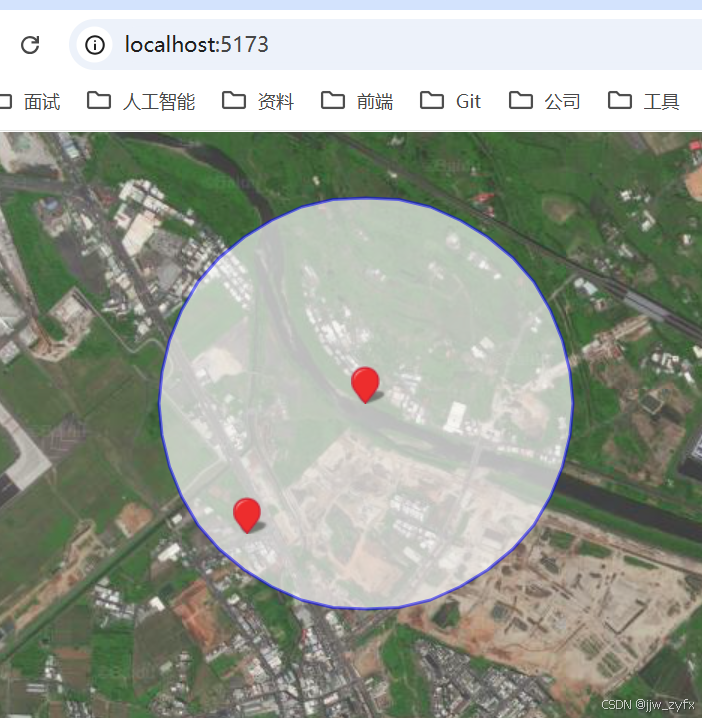
vue3 vite或者vue2 百度地图(卫星图)离线使用详细讲解
1、在Windows上下载瓦片,使用的工具为: 全能电子地图下载器3.0最新版(推荐) 下载后解压,然后进入目录"全能电子地图下载器3.0最新版(推荐)\全能电子地图下载器3.0\MapTileDownloader" 在这个目录…...

《Python实战进阶》No17: 数据库连接与 ORM(SQLAlchemy 实战)
No17: 数据库连接与 ORM(SQLAlchemy 实战) 摘要 本文深入探讨SQLAlchemy在复杂场景下的高级应用,涵盖四大核心主题: 会话生命周期管理:通过事件钩子实现事务监控与审计追踪混合继承映射:结合单表/连接表继…...
--前端音视频处理)
工程化与框架系列(27)--前端音视频处理
前端音视频处理 🎥 引言 前端音视频处理是现代Web应用中的重要组成部分,涉及音频播放、视频处理、流媒体传输等多个方面。本文将深入探讨前端音视频处理的关键技术和最佳实践,帮助开发者构建高质量的多媒体应用。 音视频技术概述 前端音视…...
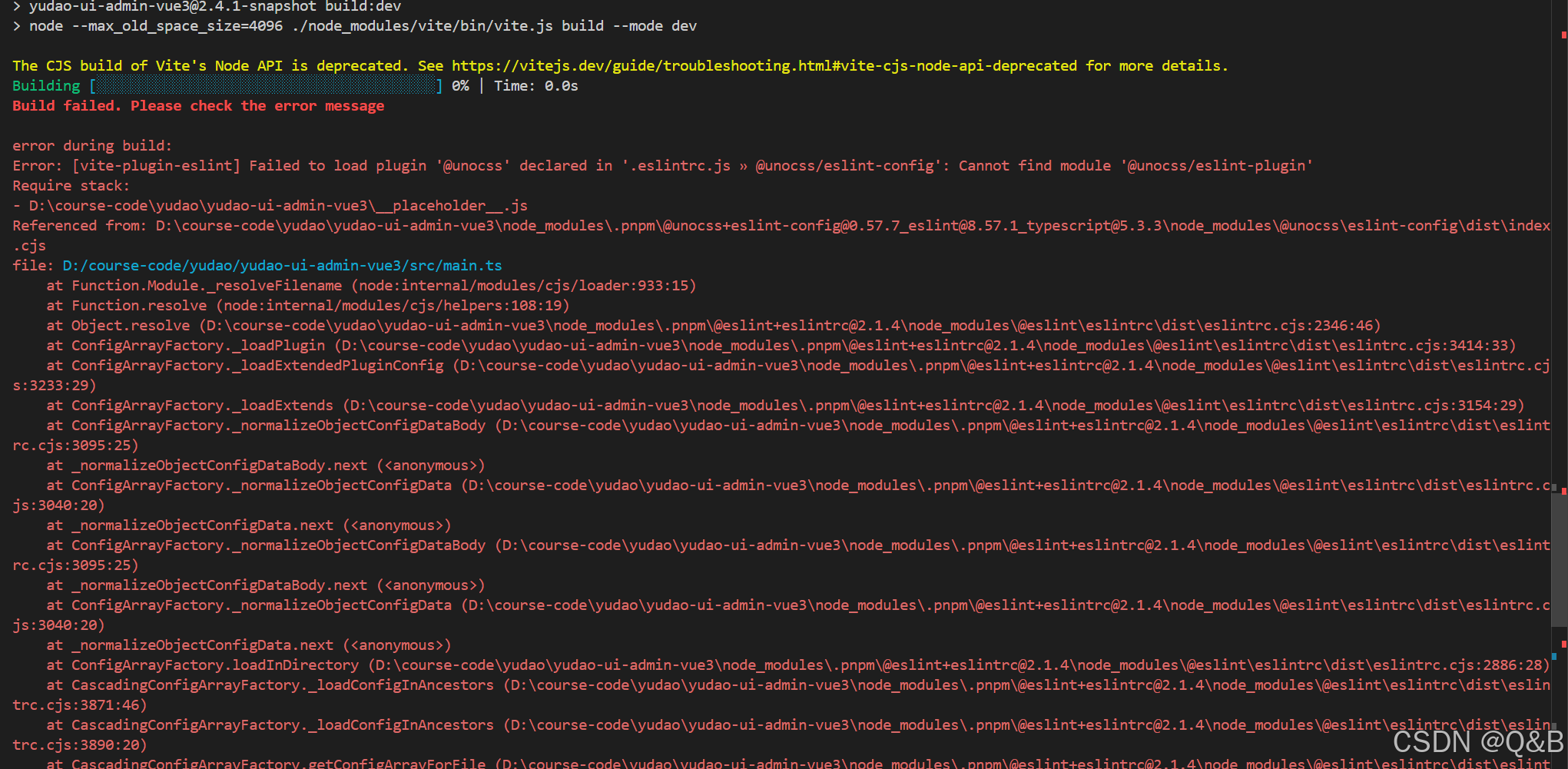
芋道打包时报错:缺失@unocss插件
在遇到打包时,报这个错误,提示构建失败是因为 ESLint 在加载 unocss 插件时,找不到 unocss/eslint-plugin 模块 解决办法:安装缺失的依赖:保证unocss/eslint-plugin已经被正确安装, 使用以下命令安装&…...

PY32MD320单片机 QFN32封装,内置多功能三相 NN 型预驱。
PY32MD320单片机是普冉半导体的一款电机专用MCU,芯片采用了高性能的 32 位 ARM Cortex-M0 内核,主要用于电机控制。PY32MD320嵌入高达 64 KB Flash 和 8 KB SRAM 存储器,最高工作频率 48 MHz。PY32MD320单片机的工作温度范围为 -40 ~ 105 ℃&…...

深入解析 configService.addListener 使用中的注意事项
在使用 Nacos 的 configService.addListener 方法进行配置监听时,为了确保程序的稳定性、可靠性以及高效性,有诸多注意事项需要我们关注。下面将对这些关键要点进行详细阐述。 一、连接稳定性 1.1 网络连接问题 Nacos 客户端与服务端通过网络进行通信&…...
)
Windows控制台函数:控制台读取输入函数ReadConsoleA()
目录 什么是 ReadConsoleA? 它长什么样? 怎么用它? 它跟 std::cin 有什么不一样? 注意事项 什么是 ReadConsoleA? ReadConsoleA 是一个 Windows API 函数,用来从控制台读取用户输入。想象一下&#…...
)
奇安信 2025 年护网蓝队初选笔试题(附答案解析)
🔥 爆款 CSDN 题库 | 超全护网蓝队笔试真题 | 含详细答案解析 🔥 熬夜为大家整理了 奇安信 2025 年护网蓝队初选笔试题,(关注我我会持续更新)涵盖 SQL 注入、Web 安全、渗透测试、二进制安全 等核心知识点,…...

国产编辑器EverEdit - Web预览设置
1 设置-高级-Web预览 1.1 设置说明 选择主菜单工具 -> 设置 -> 常规,在弹出的选项窗口中选择Web预览分类,如下图所示: 1.1.1 本地浏览HTML文件 如果用户只是在本地浏览HTML文件,即直接用浏览器打开HTML文件,确…...

P8686 [蓝桥杯 2019 省 A] 修改数组--并查集 or Set--lower_bound()的解法!!!
P8686 [蓝桥杯 2019 省 A] 修改数组--并查集 题目 并查集解析代码【并查集解】 Set 解法解析lower_bound代码 题目 并查集解析 首先先让所有的f(i)i,即每个人最开始的祖先都是自己,然后就每一次都让轮到那个数的父亲1(…...
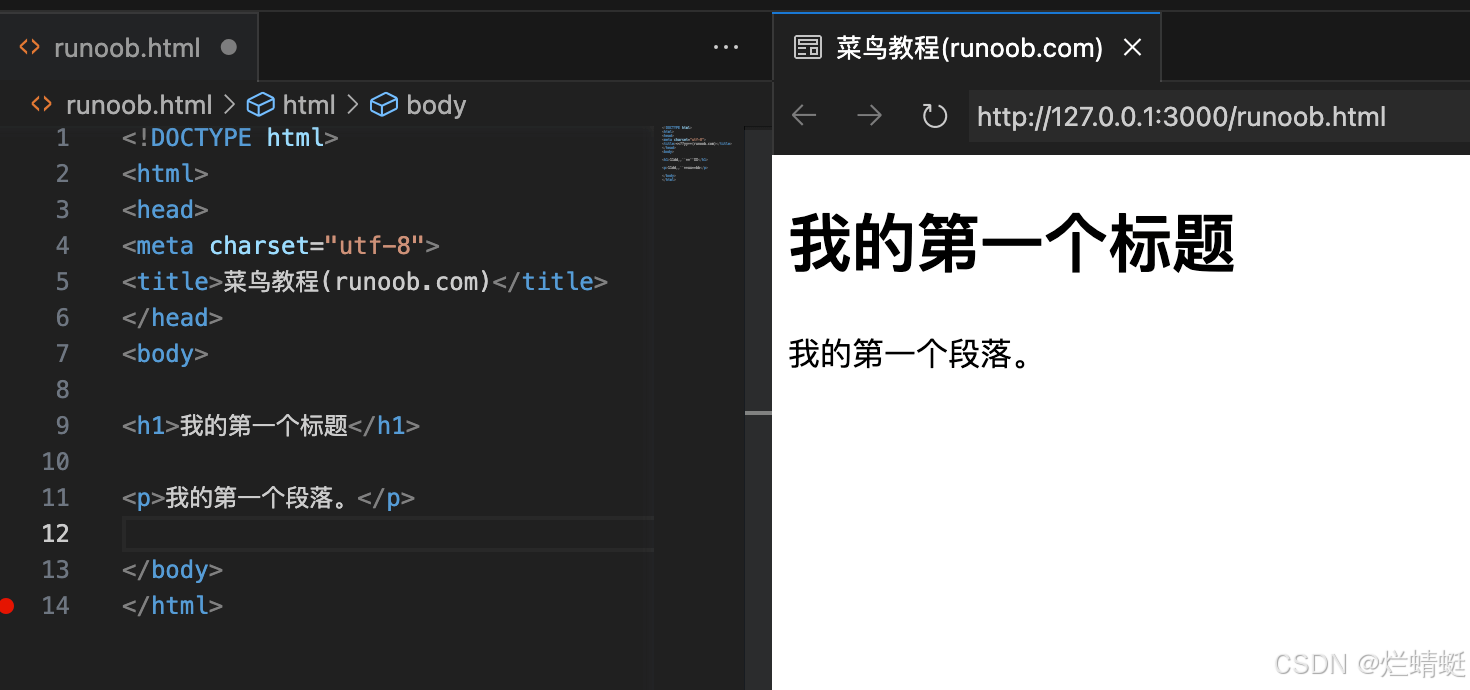
HTML 编辑器推荐与 VS Code 使用教程
在进行 HTML 编程时,选择一款合适的 HTML 编辑器能极大地提高开发效率。以下为大家推荐几款常用且功能强大的 HTML 编辑器,同时详细介绍如何使用 VS Code 创建和预览 HTML 文件。 一、HTML 编辑器推荐 VS Code:由微软开发,是一款…...
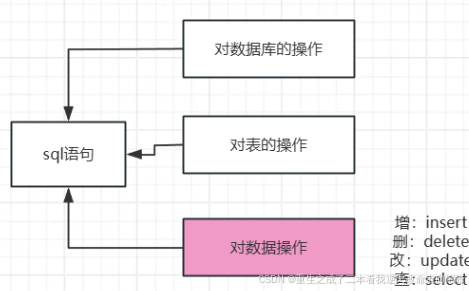
MyBatis增删改查:静态与动态SQL语句拼接及SQL注入问题解析
MyBatis 是一个优秀的持久层框架,它支持定制化 SQL、存储过程以及高级映射。MyBatis 避免了几乎所有的 JDBC 代码和手动设置参数以及获取结果集的工作。本文将深入探讨 MyBatis 中的增删改查操作,重点讲解静态与动态 SQL 语句的拼接,并分析 S…...

在运维工作中,Lvs、nginx、haproxy工作原理分别是什么?
在运维工作中,LVS、NGINX和HAProxy都是常用的负载均衡和反向代理工具,它们在高可用性和负载均衡场景中发挥重要作用。以下是其原理和应用场景详解: LVS(Linux Virtual Server) 工作原理 LVS是基于Linux内核的负载均…...

linux学习(五)(服务器审查,正常运行时间负载,身份验证日志,正在运行的服务,评估可用内存)
服务器审查 在 Linux 中审查服务器的过程包括评估服务器的性能、安全性和配置,以确定需要改进的领域或任何潜在问题。审查的范围可以包括检查安全增强功能、检查日志文件、审查用户帐户、分析服务器的网络配置以及检查其软件版本。 Linux 以其稳定性和安全性而闻名…...
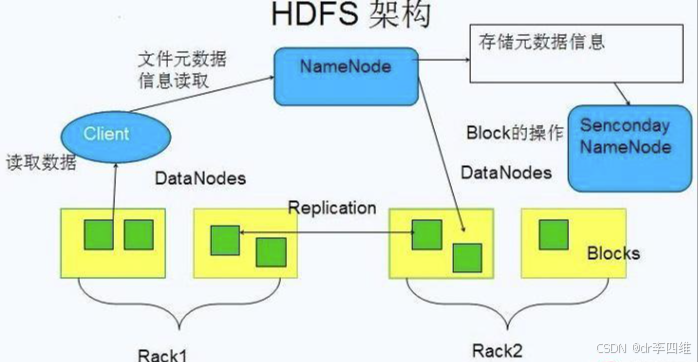
Java在小米SU7 Ultra汽车中的技术赋能
目录 一、智能驾驶“大脑”与实时数据 场景一:海量数据的分布式计算 场景二:实时决策的毫秒级响应 场景三:弹性扩展与容错机制 技术隐喻: 二、车载信息系统(IVI)的交互 场景一:Android Automo…...
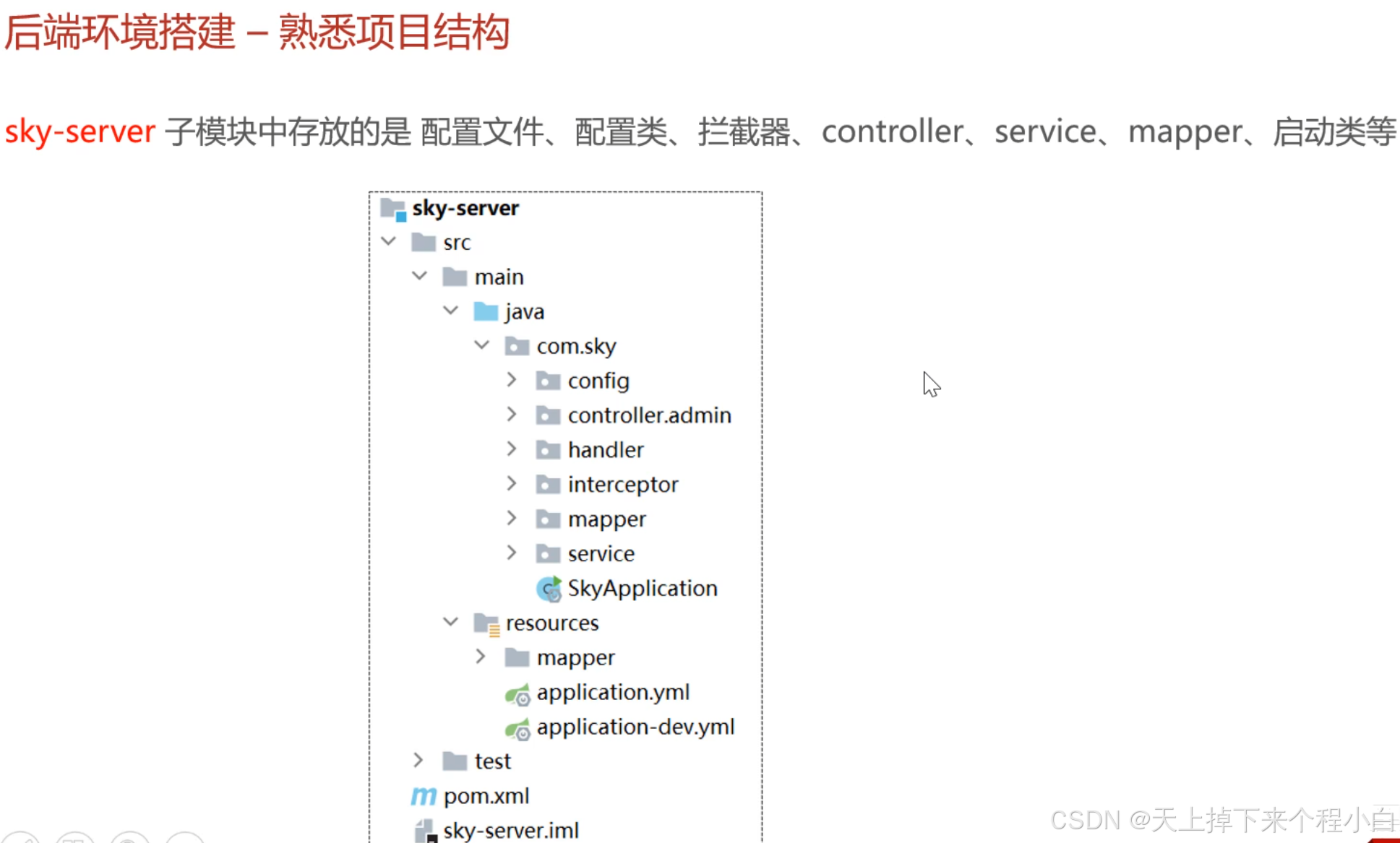
开发环境搭建-02.后端环境搭建-熟悉项目结构
一.后端环境搭建...

js实现pdf文件路径预览和下载
预览 直接浏览器窗口打开默认就是预览 window.open(文件路径)下载 function downloadPDF(url, filename) {fetch(url).then(response > response.blob()).then(blob > {const link document.createElement(a);link.href URL.createObjectURL(blob);link.download fi…...
)
【RAG】基于向量检索的 RAG (BGE示例)
RAG机器人 结构体 文本向量化: 使用 BGE 模型将文档和查询编码为向量。 (BGE 是专为检索任务优化的开源 Embedding 模型,除了本文API调用,也可以通过Hugging Face 本地部署BGE 开源模型) 向量检索: 从数据库中找到与查询相关的文…...

AI-调查研究-01-正念冥想有用吗?对健康的影响及科学指南
点一下关注吧!!!非常感谢!!持续更新!!! 🚀 AI篇持续更新中!(长期更新) 目前2025年06月05日更新到: AI炼丹日志-28 - Aud…...
)
进程地址空间(比特课总结)
一、进程地址空间 1. 环境变量 1 )⽤户级环境变量与系统级环境变量 全局属性:环境变量具有全局属性,会被⼦进程继承。例如当bash启动⼦进程时,环 境变量会⾃动传递给⼦进程。 本地变量限制:本地变量只在当前进程(ba…...

PHP和Node.js哪个更爽?
先说结论,rust完胜。 php:laravel,swoole,webman,最开始在苏宁的时候写了几年php,当时觉得php真的是世界上最好的语言,因为当初活在舒适圈里,不愿意跳出来,就好比当初活在…...

DockerHub与私有镜像仓库在容器化中的应用与管理
哈喽,大家好,我是左手python! Docker Hub的应用与管理 Docker Hub的基本概念与使用方法 Docker Hub是Docker官方提供的一个公共镜像仓库,用户可以在其中找到各种操作系统、软件和应用的镜像。开发者可以通过Docker Hub轻松获取所…...
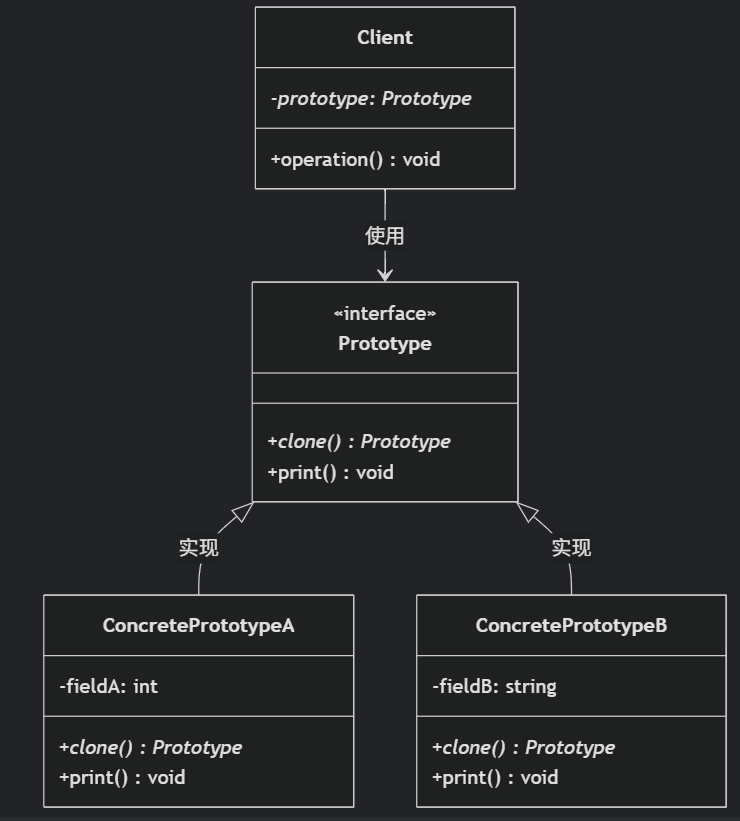
(二)原型模式
原型的功能是将一个已经存在的对象作为源目标,其余对象都是通过这个源目标创建。发挥复制的作用就是原型模式的核心思想。 一、源型模式的定义 原型模式是指第二次创建对象可以通过复制已经存在的原型对象来实现,忽略对象创建过程中的其它细节。 📌 核心特点: 避免重复初…...
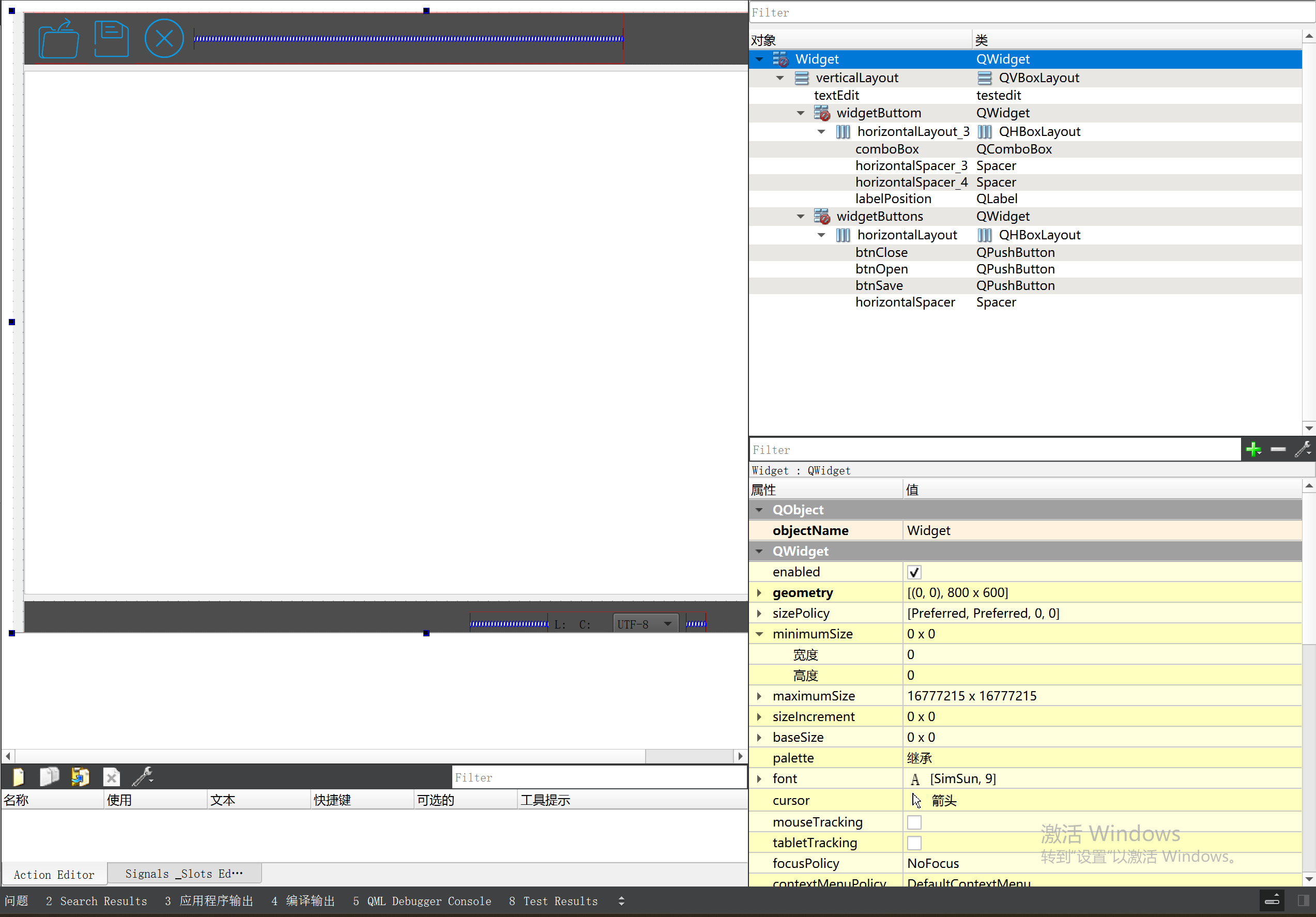
P3 QT项目----记事本(3.8)
3.8 记事本项目总结 项目源码 1.main.cpp #include "widget.h" #include <QApplication> int main(int argc, char *argv[]) {QApplication a(argc, argv);Widget w;w.show();return a.exec(); } 2.widget.cpp #include "widget.h" #include &q…...

【算法训练营Day07】字符串part1
文章目录 反转字符串反转字符串II替换数字 反转字符串 题目链接:344. 反转字符串 双指针法,两个指针的元素直接调转即可 class Solution {public void reverseString(char[] s) {int head 0;int end s.length - 1;while(head < end) {char temp …...

【Web 进阶篇】优雅的接口设计:统一响应、全局异常处理与参数校验
系列回顾: 在上一篇中,我们成功地为应用集成了数据库,并使用 Spring Data JPA 实现了基本的 CRUD API。我们的应用现在能“记忆”数据了!但是,如果你仔细审视那些 API,会发现它们还很“粗糙”:有…...

今日学习:Spring线程池|并发修改异常|链路丢失|登录续期|VIP过期策略|数值类缓存
文章目录 优雅版线程池ThreadPoolTaskExecutor和ThreadPoolTaskExecutor的装饰器并发修改异常并发修改异常简介实现机制设计原因及意义 使用线程池造成的链路丢失问题线程池导致的链路丢失问题发生原因 常见解决方法更好的解决方法设计精妙之处 登录续期登录续期常见实现方式特…...

在Ubuntu24上采用Wine打开SourceInsight
1. 安装wine sudo apt install wine 2. 安装32位库支持,SourceInsight是32位程序 sudo dpkg --add-architecture i386 sudo apt update sudo apt install wine32:i386 3. 验证安装 wine --version 4. 安装必要的字体和库(解决显示问题) sudo apt install fonts-wqy…...
